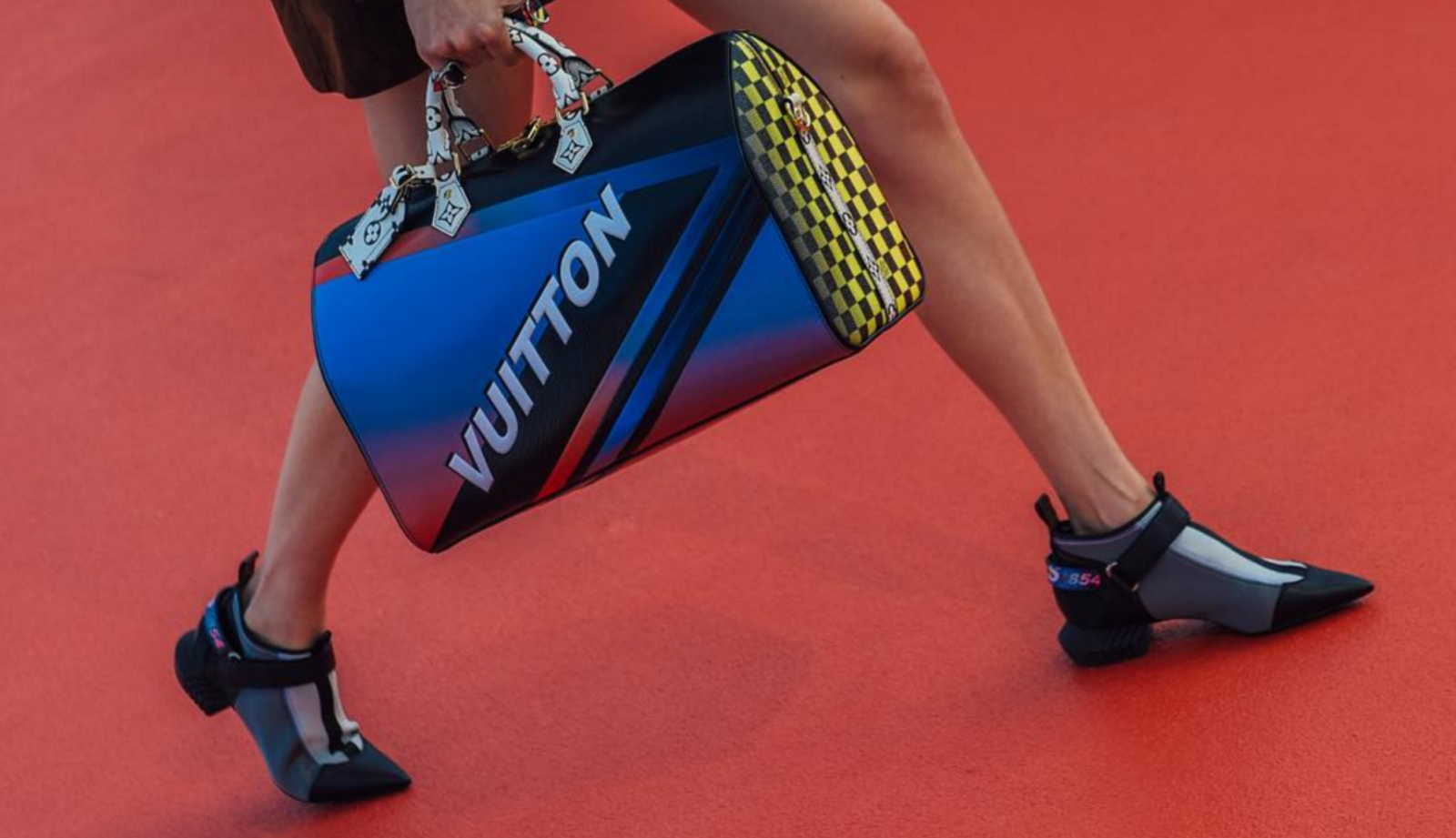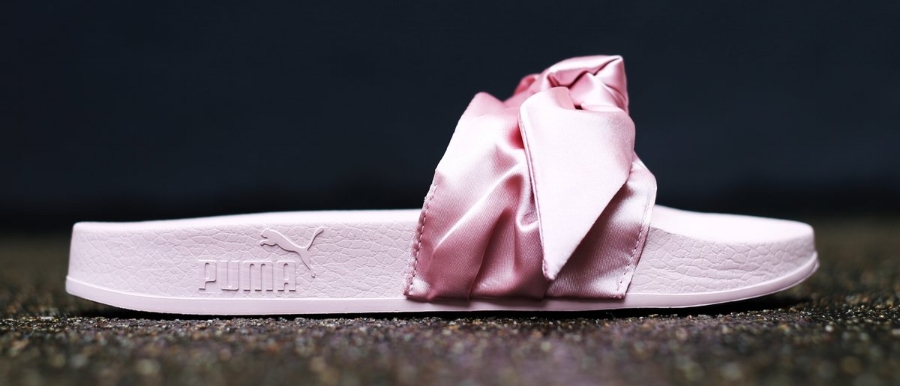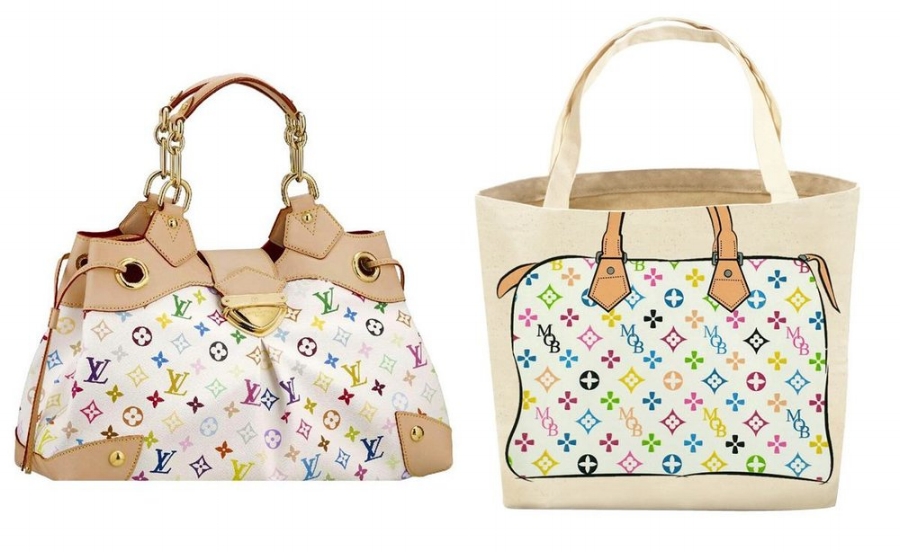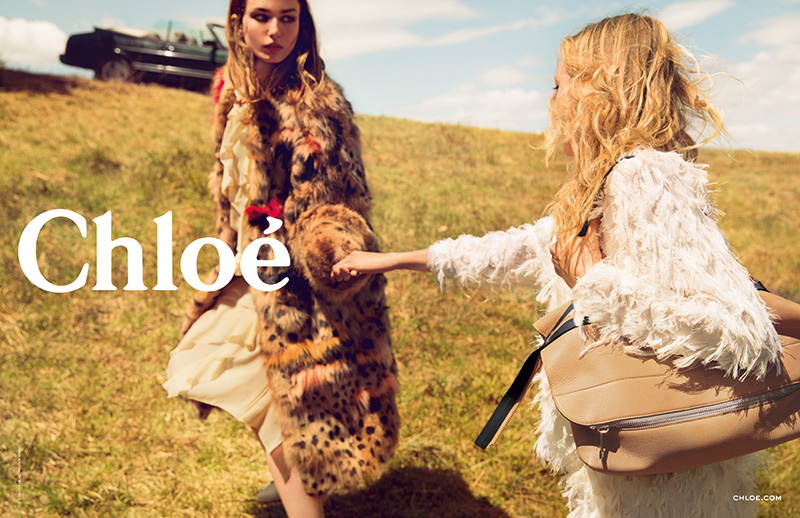
image: TheFashionSpot
Lawsuits that pit fashion brands and their intellectual property against one another are filed almost every day (and in some cases, such as when sportswear giants are involved, these disputes are seemingly only increasing frequency). In light of the large number of fashion intellectual property cases on courts’ dockets across the country (and internationally), some certainly stand out more than others in terms of the potential ramifications they will have for the companies at play and the fashion industry at large.
Here are five currently pending or recently decided cases that are worth keeping a close eye on, as they could serve to impact the fashion industry in a big way …
1. Star Athletica v. Varsity Brands

image: Cheerleader mag
Hands down one of the most anticipated cases of the past year or so, intellectual property-wise, that is, has been the “cheerleader case.” In October 2016, the Supreme Court heard an appeal by Star Athletica, a cheerleading uniforms company, of a 2015 ruling by the Cincinnati-based 6th U.S. Circuit Court of Appeals in the lawsuit filed by Varsity Brands Inc., the dominant U.S. maker of cheerleader uniforms, accusing its smaller rival of infringing five of its designs.
The case centers on whether the stripes, zigzags and chevrons characteristic of cheerleader uniforms can be copyrighted, as Varsity contends, or are so fundamental to the purpose of the garment that they should not get such legal protection. Without such adornments, a cheerleader uniform might look like any other dress, Star argued.
While the Supreme Court issued its decision, clarifying the test for “separability” in connection with creative elements that are part of a useful article (such as a garment), the case is not over yet. In fact, one critical decision is still up for grabs: Whether the uniforms at issue are original enough to actually be subject to copyright protection, which will be decided by the lower court.
2. Puma v. Forever 21

With the aforementioned case in mind, the lawsuit that Puma filed against Forever 21 in early April is significant. On the heels of reports that Forever 21 is offering lookalike versions of footwear from Rihanna’s Fenty line for Puma, the German sportswear giant slapped the copycat retailer with a design patent, trade dress, and copyright infringement lawsuit.
According to Puma’s suit, which was filed in the U.S. District Court for the Central District of California, the Los Angeles-based fast fashion brand has copied three of the most prominent footwear designs from Rihanna’s collection for Puma in attempts to “trade on the substantial goodwill of Puma, Rihanna, and the Fenty shoes.”
Puma set forth claims of design patent, trade dress, and copyright infringement. In connection with the latter, Puma’s counsel applies the test defined in the Star Athletica v. Varsity Brands decision, citing: “The Fenty Copyrights (1) can be perceived as a two- or three- dimensional works of art separate from the Fenty Shoes and (2) would qualify as protectable pictorial, graphic, or sculptural works—either on their own or fixed in some other tangible medium of expression.”
In particular, Puma cites the following as the copyright-protected elements of its footwear: The “ridged vertical tooling and grainy texture encompassing the thick rubber outer sole” for the Creeper; the “wide plush fur strap extending to the base of the sandal” for the Fur Slide; and the “casually knotted fabric bow with pointed endings atop a lined side strap that extends to the base of the sandal” for the Bow Slide.
This is noteworthy as it is one of the first – if not the first – cases to put the Supreme Court’s new separability test to use. It will be interesting – and telling – to see how the U.S. District Court for the Central District of California, a court that sees a fair amount of fashion cases, applies it (assuming the case is not dismissed (as Forever 21 recently moved for) and/or the parties do not settle before trial, that is).
3. Apple v. Samsung

In December 2016, the U.S. Supreme Court ruled that a lower court should revisit a multi-million-dollar damages award handed to Apple Inc. in connection with rival Samsung’s copying of the iPhone’s patent-protected design. The unanimous decision extends a legal battle that dates back to 2011 and at one point, spanned the globe and engulfed every major maker of smartphones.
Samsung appealed to the Supreme Court, arguing that $399 million of the $548 million in damages it had been ordered to pay Apple – in connection with a 2012 jury verdict – for copying the designs of the iPhone’s rounded-corner front face, bezel and grid of icons, were excessive. The phone-maker also argued that those patent-protected features contributed only marginally to a complex product.
Writing for the court, Justice Sonia Sotomayor said Apple might not be entitled to Samsung’s entire profits on 11 infringing smartphones. She told a federal appeals court to consider whether Apple should be able to recoup profits attributable only to particular components – as opposed to the designs as a whole. As a result, the Supreme Court’s ruling – and the lower court’s decision, which is still pending – stands to have a widespread impact on patent infringement damages awards going forward.
The fashion industry identified that it had a stake in the outcome of the case, and in August 2016, more than 100 designers and educators signed on to an amicus brief in support of Apple. Famous fashion names involved include Nicolas Ghesquière, Alexander Wang, Calvin Klein, Dries Van Noten, Paul Smith, Alber Elbaz and Sacai’s Chitose Abe, the industrial design director at Parsons School of Design, the design director for Bentley Motors, and Tony Chambers, the editor-in-chief of Wallpaper magazine.
In February, the U.S. Court of Appeals for the Federal Circuit remanded the case back to the U.S. District Court for the Northern District of California. The Federal Circuit opted to remand the case for further proceedings, which may or may not include a new trial on damages. The lower court will decide whether a new trial on damages is necessary.
4. Louis Vuitton v. My Other Bag

The parody defense is alive and well in the Second Circuit thanks to a decision from earlier this year. You may recall that in December 2016, the Second Circuit Court of Appeals affirmed the Southern District of New York’s January 2016 ruling that the inexpensive “My Other Bag” canvas totes, which bear cartoon imagery of Louis Vuitton trademarks, are, in fact, protected by the parody defense.
As such, the Second Circuit held that My Other Bag is not on the hook for copyright infringement or trademark infringement or dilution, as asserted by Louis Vuitton. The appeals court, like the SDNY, was also quick to call out Louis Vuitton – the world’s most valuable design brand – for its failure to take a joke, which was been an ongoing theme in this case, which was originally filed in June 2014.
Following the unfavorable ruling, Louis Vuitton sought a hearing en banc – or a hearing before the full court of all the appeals judges, which was shot down by the court in February. In a one-page order, the court said it declined to give the suit a panel or en banc rehearing but did not give a reason, letting stand its December ruling that ended claims against California retailer My Other Bag.
The court’s finding for My Other Bag arguably serves to widen the protections afforded by the parody doctrine. Louis Vuitton argued through the duration of the case that a parody must be specific to its brand – and not speak to luxury brands or luxury consumption in general, for instance – in order to constitute a parody, and thereby, shield the defendant from trademark infringement.
The brand further argued that Second Circuit case law establishes that “a mere humorous use” or “gentle satire” of another’s trademark for commercial purposes does not meet the legal requirements of a parody, “particularly when the claim of parody comes only after-the-fact and is contrary to record evidence.”
In siding with My Other Bag, the court held that brands need to make a brand-specific comment (by way of its parody), but may be aiming to make a more generalized statement, such as “society’s larger obsession with status symbols.”
Louis Vuitton has since asked the nation’s highest court, the Supreme Court, to hear the case. According to the brand’s petition to the Supreme Court, “Louis Vuitton has devoted more than a century to developing, promoting, and protecting trademarks that are universally recognized symbols of the company’s products and that constitute a guarantee of the products’ origin and quality.” And in getting it wrong and ruling for My Other Bag, the lower courts, per Vuitton, are not only hurting its brand but other brands with valuable trademarks.
5. The Richemont Internet Cases

Fifth on this list is a string of important international cases involving luxury brands and internet service providers (“ISPs”), some of which were adjudicated fully in 2016 (but still warrant attention on a 2017-centric list) and at least one of which was just decided recently.
The U.K. High Court of Justice sided with Compagnie Financière Richemont, the luxury conglomerate that owns Cartier, Chloé and Montblanc, among other brands, which sought to force a group of ISPs to block sites offering counterfeit goods.
Richemont took to Britain’s high court in 2014, asking the judge to order five of Britain’s largest internet service providers (BT, Virgin Media, Sky, TalkTalk and EE) to utilize existing piracy laws to take down a total of seven websites that sell products that infringe upon Richemont trademarks (think: “Cartier” Love bracelets, Montblanc watches and fake Van Cleef and Arpels jewels). In essence, Geneva-based Richemont wanted British ISPs to prevent British citizens from visiting websites (such as CartierLoveOnline.com) selling counterfeit goods.
In February 2016, the court held that the ISPs must prevent access to five sites, including montblancebay.com, because they infringe the companies’ trademarks by selling fake goods. This decision was upheld in July 2016 by the U.K. Court of Appeal. The case has been considered a landmark, in that it is one of the first in which a London judge has been asked by the luxury brands to block websites selling fake goods.
On the heels of that ruling, a federal court in Australia has forced the country’s leading internet providers to block several websites for copyright infringement, including ones offering infringing versions of popular HBO series, Game of Thrones.







